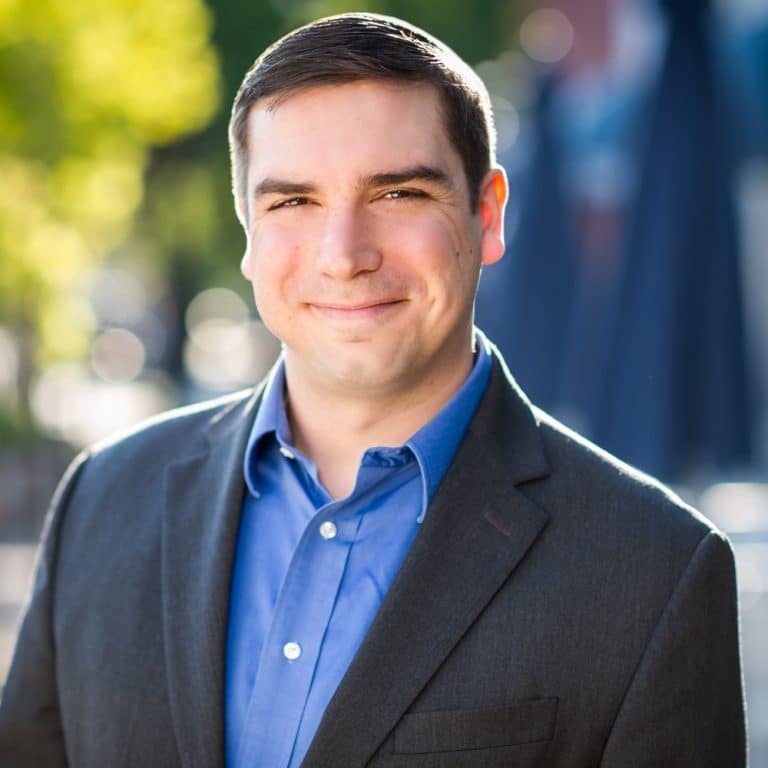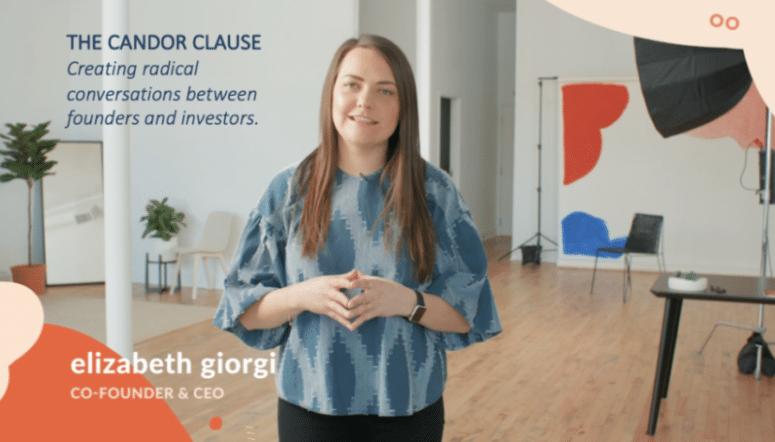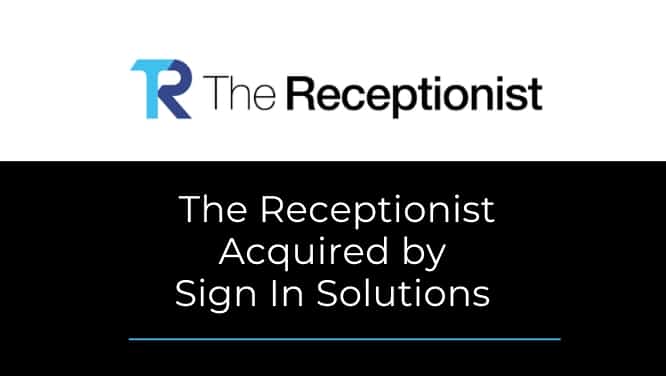Breaking Barriers: How One Startup is Seeking to Improve Equality in Investing and Venture Capital

- Charles Ciaccio
- |
- July 29, 2019
KO client soona recently closed on a $1.185 million financing that included the newly created Candor Clause, an open-source clause intended to promote a radically open dialogue between founders and their potential investors around sexual harassment.
I recently talked with Liz Giorgi, co-founder of soona, a same-day professional photo and video studio, about the company’s recent financing and how they are leading the charge on gender equity at the intersection of startups, investing and venture capital.
CC: What led to the formation of the Candor Clause?
LG: Women have come a long way in entrepreneurship in the last decade. In fact, we are starting more companies than any other time in history. But that metric is only a part of the story. Only 4 percent of executives in the investment industry are women. In the U.S. last year, female founders received only 2 percent of all venture capital funding. My co-founder, Hayley Anderson, and I knew it was going to be a challenge to raise money. But, as long as we are seeking a big goal – why not really go for it? Our goal is to improve gender equality in the startup community in everything we do.
I had personally encountered sexual harassment and it was one of the most demoralizing times I have had in my journey as a business owner. I initially brought this gender equality idea to you in a conversation about my personal experience, not a specific legal question, which is a testament to our strong partnership.
Together, I think we saw this as both an ethical and a business issue, and we came up with a workable solution in the form of the Candor Clause. The flexible and collaborative nature of our working relationship was key for me – I didn’t ever worry about this kind of work being ‘out of scope’ or a distraction to our goals. Instead, it was in perfect alignment with our shared vision.
I don’t know how many startup founders have that kind of a relationship with their law firm, but this speaks to the importance of men being allies with women. I felt confident bringing this up because I knew you would be an ally for us and would willingly think outside of the box to come up with a creative solution.
CC: When raising money, entrepreneurs have to answer a whole host of probing diligence questions about their experience and background, and companies have to make extensive representations and warranties in their investment agreements about all aspects of the business, while investor representations are largely limited to things like legal authority and securities requirements. Recently, some companies have been asked to represent that their leadership hasn’t been subject to sexual harassment claims but, prior to the Candor Clause, investors were not required to do the same.
LG: Exactly. Gender inequality at the upper levels of the investment industry and this imbalance between founders and investors inherently creates an uneven playing field for entrepreneurs and investors.
CC: What does the Candor Clause accomplish in your view?
LG: The Candor Clause is an open-source legal disclosure for inclusion in fundraising documents that requires investors to disclose whether they’ve ever been accused of sexual assault, sexual harassment or any other kind of inappropriate behavior as it relates to gender. Ultimately, its purpose is to foster conversations between founders and investors about gender equality.
Creating a way to have this type of dialog and openness in disclosures between founders and investors was most important to us and we feel it should be more common. The Candor Clause also gives the company a path to a remedy if the investor withholds information at the time of the investment.
CC: Right—for example, if an investor were to intentionally withhold that information, that could be grounds for a fraud claim. The path to a remedy would hopefully bring the offending investor to the table for a quicker, amicable solution such as removal of the investor from the board or a secondary sale of the investor’s position. With the standard investment agreements in the market prior to the Candor Clause, the company could only seek a remedy in the court of public opinion. Hopefully, this accountability encourages the desired up-front disclosures and gives founders more visibility into its stakeholders.
LG: Not only that, but we think it sets a different tone for the relationship in the long-term. No matter how you look at it, a relationship between an entrepreneur and an investor is just that – a relationship. If it does not come from a place of honesty, transparency and a culture of conversation, even around the toughest issues – no one can win.
It was also very important to us to make this an open-source, easily adoptable clause that is now available to all entrepreneurs to use in their investment agreements. Anyone can download it at candorclause.com.
CC: From your perspective, what was the process like to create the Candor Clause?
LG: My initial idea was to vet potential investors by giving them a written questionnaire with some hard-hitting, investor-diligence questions. When you and I talked through this initial approach, it was helpful to brainstorm several other ideas. We went through various iterations of this concept because we needed to balance the desire to foster these tough conversations with the need to provide a palatable option for potential investors in order to secure funding and close financings. Luckily, we were wildly oversubscribed! So, it also helped in my view that we had the luxury of being able to really think through who was going to be a good fit.
You and the KO team were willing to think outside of existing paradigms and, ultimately, we landed on the Candor Clause as the best workable solution.
CC: What has the response been to the Candor Clause, and do you anticipate increased use of the clause by other entrepreneurs?
LG: Our lead investor was very supportive of the Candor Clause and so were our follow-on investors. Several have even offered to include it in their standard financing documents, which again, goes back to the importance of having male advocates in this community. If more investors publicly support it, it will make the conversation that much easier for the next female founder.
We’re also working to spread the word about the Candor Clause to other entrepreneurs and investors through media coverage, like TechCrunch, and through word-of-mouth publicity like speaking to founders in Techstars’ most recent cohort.
And, we’re already seeing positive results: I recently got an unsolicited email from a male founder who is using the Candor Clause in his company’s investment documents. I’m excited to see continued adoption and increased gender equality in the startup and investment communities.
Charles Ciaccio is a partner at Koenig, Oelsner, Taylor, Schoenfeld & Gaddis PC (KO Law Firm), an innovative corporate and commercial law firm with a team of experienced lawyers and a practical, efficient, business-focused approach. Founded in 2003 on the philosophy that a different approach delivers better value, our business-first legal and industry expertise helps established brands and emerging companies achieve meaningful business outcomes. KO is headquartered in Denver and Boulder, Colo., and serves the technology, life sciences, consumer products, professional services, financial services, manufacturing, energy and ancillary cannabis industries. Reach Charles at [email protected].




